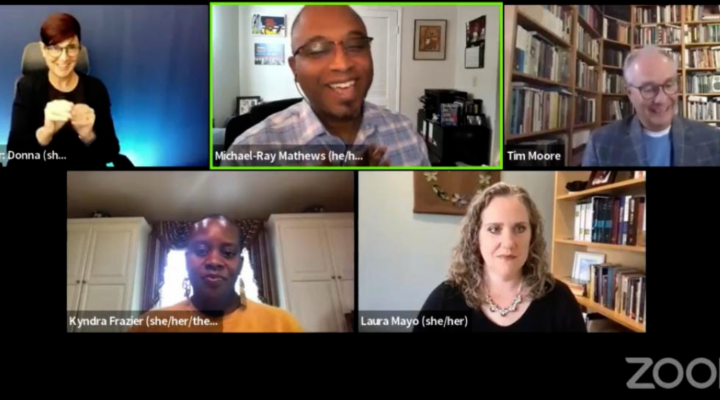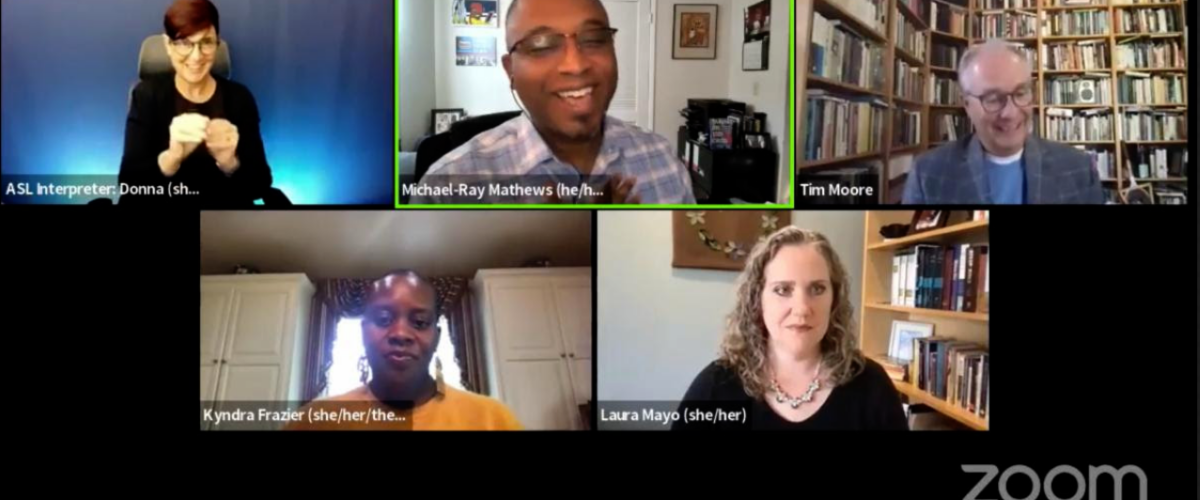Moving past belief in penal substitutionary atonement can positively impact Christians’ spiritual, emotional and mental health, according to participants in panel discussions presented during the 2022 virtual gathering of the Alliance of Baptists.
The theme of the April 22-24 meeting, “Taking on the Cross: [re]Learning the Love of God,” was addressed by an array of ministers and theologians who shared the personal and theological implications of penal substitutionary atonement, a doctrine teaching that Jesus was punished on the Cross by a wrathful God for the sins of human beings.
The gathering followed the Alliance’s annual business meeting on April 9, which presented a slate of new officers and board members, who all were affirmed, as well as an update on progress of the organization’s anti-racism policy scheduled for adoption in the fall.
According to the business report: “Despite the pandemic, we are in a strong place with both income and cash on hand. Three staff members have joined us since our last business meeting: Malu Fairley-Collins, endorsement specialist; Elijah Zehyoue, co-director; and Dejon Campbell, development specialist.”
But it was theological and pastoral accountability that took center stage during the annual gathering later in the month, when panelists were asked to share how their experiences with, and eventual freedom from, substitutionary atonement theory has affected their lives and ministries.
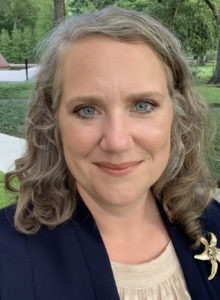
Laura Mayo
“What’s at stake for me is guilt and shame and blame,” said Laura Mayo, senior minister of Covenant Church in Houston. She spoke during “A Conversation: Reimagining the Cross Beyond Substitutionary Atonement,” a virtual panel discussion held April 23.
“I would say a whole lot of suffering is at stake. Not just Jesus’, but people like me who grew up being told we were worms and a wretch. We’ve sung it, right?”
Mayo recalled growing up with hymns and admonitions that inflicted scarring guilt by imparting her with direct responsibility for Jesus’ suffering and death.
“The tears that I have cried — and I know I’m not alone — over this idea that not only did Jesus have to die, but that I caused it. My sin was so personal — that kiss, that song, that cuss word — not sins like greed and racism. No, sins like when I said ‘shit’ because I stubbed my toe and Jesus was crying in agony again because of that.”
Mayo said she has since traded the remorse that comes with substitutionary atonement for a conception of the compassionate Jesus presented in the Gospels. And she relays that message in her teaching and preaching.
“God is a God of love. God calls us all beloved. You are loved. You are adored. You are enough. God welcomes you in the totality of who you are,” she said. “This whole salvation thing is about liberation here and now. Jesus told us that’s what Jesus was doing.”

Kyndra Frazier
Panelist Kyndra Frazier, a Baptist minister and the CEO of Kynd Consulting, a trauma-informed mental wellness firm, said freedom from the theology of substitutionary atonement has widened the scope of her faith experience.
“The first thing that comes to mind is this phrase I heard in seminary: ‘God cannot be canonized.’ What’s at stake for me is the opportunity to meet people who are experiencing God as a verb, the opportunity to meet other folks who are leaning into their experiential engagement with this vast, immense living being that many of us refer to as God, some of us as Allah, some of us as Source. So, what’s at stake for me is broadening my community.”
During “A Conversation Panel on Atonement Theology” held April 22, panelists discussed their memories of the substitionary atonement teaching and how they were able to detach from it.
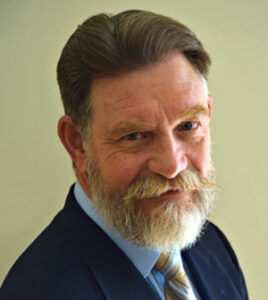
Graham Walker
For Graham B. Walker Jr., a theology professor at Mercer University’s McAfee School of Theology, it was being exposed to Asian churches as the son of missionaries that first alerted him to role the theology plays in the connection between empire and church.
“I saw a church that was not dependent on being the civil religion of a powerful nation. That church allowed me to see what was propping up beliefs of a civil religion. The church could function differently. They did not need a wrathful God, even though a wrathful God was used to introduce them to the faith.”
Upon returning to the United States, Walker recalled being confronted by American flags in sanctuaries, church Fourth of July celebrations where guns were present. “And I began to question: What’s this all about?”
Later he visited Koinonia Farms in Georgia, where he was introduced to the teachings of Clarence Jordan and to the Baptist Peace Fellowship.
“I began to find that if you are using a theology that finds a justification for violence, then you are propping up a much larger system than the church needs to have,” he said.
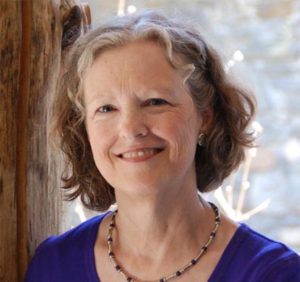
Nancy Sehested
Nancy Sehested said it was an immersion into feminist, womanist and liberationist theologies that exposed the fundamentalist attitudes she grew up with.
“I was schooled in Christian exceptionalism with a Baptist spin, with a transmitted belief that not only was Jesus the only way to salvation, but the Southern Baptist way was the best of all the rest,” said Sehested, recently retired co-pastor of Circle of Mercy, a Baptist and United Church of Christ congregation in Asheville, N.C.
But coming to see the myth of redemptive violence within substitutionary atonement “opened up my imagination about how to experience God in the world, and I saw Jesus again for the first time,” she said. “I discovered the God who suffers with the suffering ones, with crucified peoples, and I have found myself walking with those who have their backs up against the wall.”
Michelle Nickens added that achieving complete release from the imagery and feelings associated with substitutionary atonement can be easier said than done.
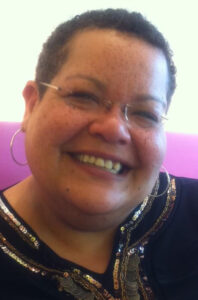
Michelle Nickens
“The hardest part is that all the good songs are rooted in that substitutionary atonement and particularly in my tradition — the Black gospel tradition. It’s so powerfully there. And I can still sing those songs and find meaning in those songs and find joy in those songs even though I find the theology problematic,” said Nickens, vice president of American Baptist Churches in the USA, and pastor of Washington Plaza Baptist Church in Reston, Va.
Nickens added that she continues to reference the concept for church members who are familiar with it. “I don’t want to exclude people because, for some, I know that model does work for them and it still speaks life to them, and I cannot disregard them. So, I continue to work with it.”
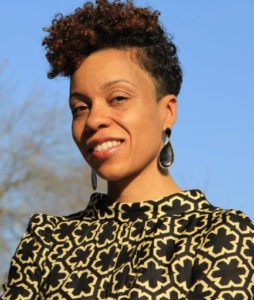
Chalice Overy
But Panelist Chalice Overy, associate pastor at Pullen Memorial Baptist Church in Raleigh, N.C., said moving beyond the concept of an angry God and the blood of the Cross has been liberating for her ministry.
“Not having to focus on Jesus’ death work gives us space to focus on Jesus’ life work,” which is about serving the poor, releasing the captives and freeing the oppressed, she said.
“To be able to focus on Jesus’ life work of liberation gives us space, time, to do the work of liberation in a way that impacts people’s lives in the here and now. That is the best thing to happen, to switch focus in ministry.”
Related articles:
God, not an atonement theory, saves humanity | Opinion by Chuck Queen
Preaching an atonement that really is good news | Opinion by Clare Johnson
Knocking down the straw man of theological liberalism | Opinion by Rick Pidcock

